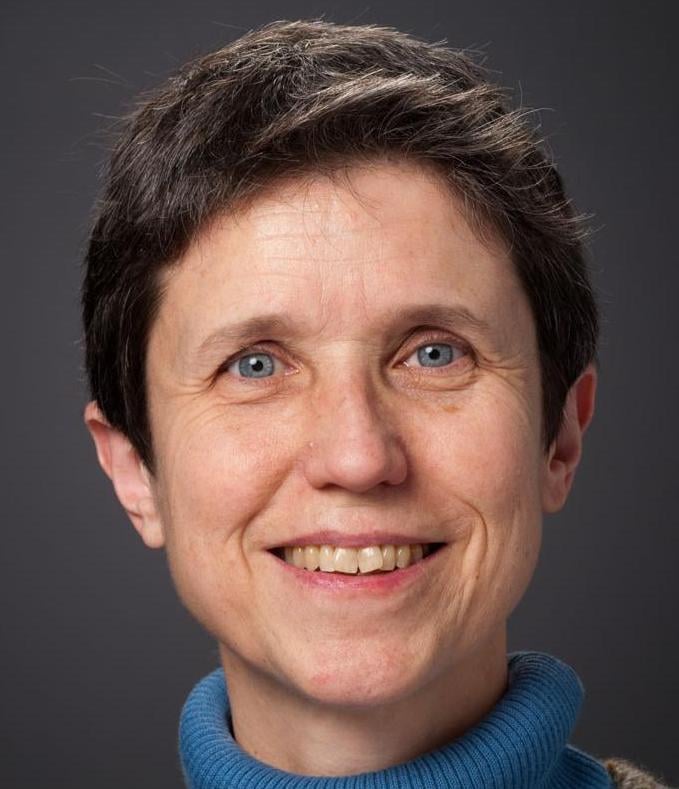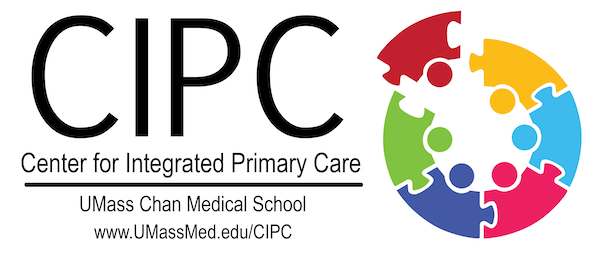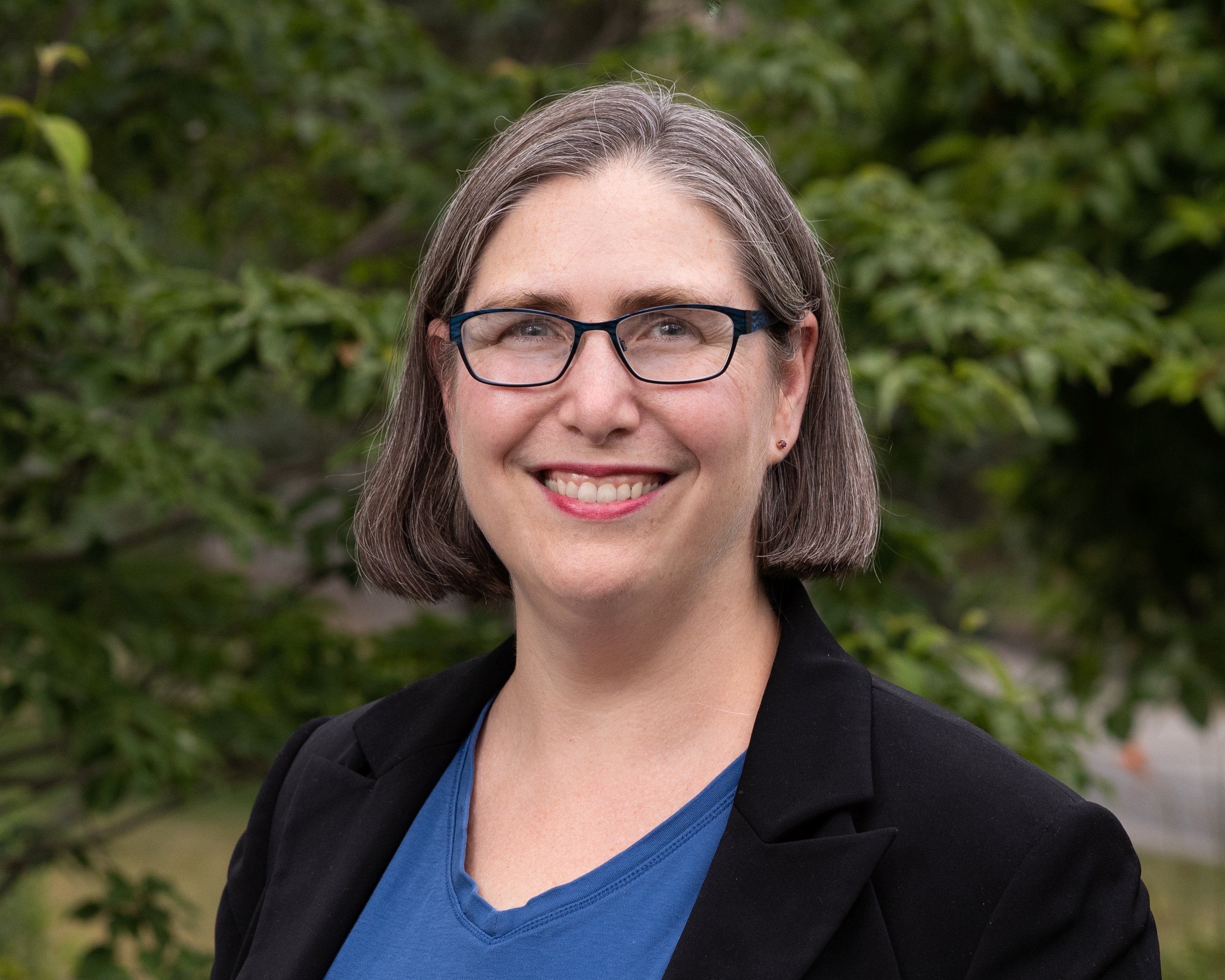Faculty

Dr. Mullin is the Director of the Center for Integrated Primary Care, the Director of the Post-Doctoral Fellowship in Primary Care Psychology and Medical Education, and a Professor in the Department of Family Medicine and Community Health at UMass Chan Medical School.
Dr. Mullin is a clinician, educator, researcher, and consultant specializing in the integration of behavioral health and primary care services. In recent years his work has focused on expanding primary care access to treatment for Opioid Use Disorder. He maintains a clinical practice embedded in the Barre Family Health Center, a rural family medicine residency practice in Massachusetts. Dr. Mullin is a member of the Motivational Interviewing Network of Trainers and provides training in Motivational Interviewing to healthcare providers.
Dr. Mullin completed his doctorate in Clinical Psychology at Spalding University in Louisville, Kentucky and received his Masters in Public Health from the University of Massachusetts, Amherst. He completed his internship in Primary Care Psychology in the Department of Family Medicine at the University of Colorado Health Sciences Center, and his fellowship in Primary Care Family Psychology in the Departments of Medicine, Psychiatry, and Family Medicine at the University of Rochester School of Medicine and Dentistry.
Amber Cahill, PsyD is an Assistant Professor in the UMass Chan Department of Family Medicine and Community Health, as well as the Associate Director of the Center for Integrated Primary Care. She is currently a Bloomberg Fellow in the Addiction & Overdose track at the Johns Hopkins Bloomberg School of Public Health. Dr. Cahill is passionate about primary care and its foundational role in caring for the health of communities; she’s provided clinical care in primary care settings since 2013. Dr. Cahill is the Director of Behavioral Science for the Fitchburg Family Medicine Residency, where she develops and implements a behavioral science curriculum that educates resident physicians in addressing mental health, substance use, and health behavior change in primary care. She has extensive experience co-leading Project ECHO hubs for primary care clinicians who are new to treating opioid use disorders and prescribing buprenorphine. Dr. Cahill has been a content advisor and creator on several grants and projects focused on medical education and substance use disorder (SUD) care. Her clinical and academic interests include integrated primary care, training primary care clinicians and teams in comprehensive mental health care, expanding treatment of SUD in primary care, enhancing SUD training in medical education, harm reduction-informed care, providing inclusive, comprehensive care for transgender and gender diverse patients in primary care, and the intersection of hormones and mental health including perinatal mood and anxiety disorders, PMDD, and perimenopause/menopause related mental health. Dr. Cahill completed internship training at the Battle Creek VA Medical Center in the primary care/health psychology track and went on to complete a 2-year postdoctoral fellowship at the UMass Chan Medical School in primary care, health psychology, and medical education. She earned her doctorate in clinical psychology from Adler University in 2014 with a concentration in primary care and behavioral medicine.
Dr. Gardiner is an Associate Professor in the Department of Family Medicine at the University of Massachusetts Medical School. She is also the Associate Director of Research and the Director of the Group Visits Program at the Center for Integrated Primary Care. She completed a three-year Clinical Research Fellowship in Complementary and Alternative Medicine Research and Faculty Development at Beth Israel in Boston MA. She received her MPH from the Harvard School of Public Health. Additionally, she was awarded an NIH K award grant focusing on Integrative Medicine, technology, and health disparities.
Her research concentration is patient-oriented research regarding chronic pain and evidenced-based integrative medicine access in low-income patients. Current research is focused on the adaptive role of an Integrative Medical Group Visit (IMGV) which combines the principles of Mindfulness-Based Stress Reduction and a Medical Group Visit to support health behavior change and reducing pain and stress. With funding from the Patient-Centered Outcome Research Institute, she is the primary investigator on a randomized controlled trial of IMGV compared to a primary care visit for participants with chronic pain and depression. She is leading the implementation of this medical group visit model nationally and provides training on medical group visits around the United States.
Her research also focuses on innovative technologies such as Embodied Conversational Agents and Our Whole Lives; a holistic e-health toolkit, an online platform that teaches mind-body techniques. Dr. Gardiner lectures nationally and internationally. She has published over 90 reviewed papers on medical group visits, chronic pain, technology, dietary supplements, pregnancy, preconception care, stress, and integrative medicine in underserved patients. As former Wellness Committee Chair at Boston Medical Center, she taught mindfulness and resiliency training to medical students, residents, and clinicians for over nine years. She is a certified instructor of the Mindfulness Practice curriculum developed by Krasner and Epstein and teaches mindfulness skills and Mindfulness-Based Stress Reduction to patients with chronic conditions. Additionally, completed a 2-year Mindfulness Meditation Teacher Certification training and has completed training in Mindfulness-Based Self Compassion.

Dr. Fareed is the Director of the Integrated Behavioral Health Program, Assistant Professor in the Department of Family Medicine & Community Health, at UMass. Dr. Shahida Fareed is a Clinical Psychologist Specialist in Fitchburg, Massachusetts. She graduated with honors in 2017. Having more than 6 years of diverse experience, especially in clinical care. She is the Director of the Integrated Behavioral Health program in the Department of Family Medicine and Community Health.

Dr. Howard-Young is the Director of Psychiatric Services at the Family Health Center of Worcester and Program Director of the FHCW/UMass Chan Fellowship in Primary Care Psychiatry. They serve as an Assistant Professor of Family Medicine and Community Health and Assistant Professor of Psychiatry at the UMass Chan Medical School. They are also Co-Director of the Certificate in Advanced Mental Health Care in Primary Care for the UMass Center for Integrated Primary Care (CIPC).
They are a graduate of the Sidney Kimmel Medical College at Thomas Jefferson University, where they participated in the population health and urban underserved tracks, served as president of the Arnold P. Gold Humanism Honor Society, and worked as a patient advocate for unhoused people. They completed their residency in family medicine through the Worcester Family Medicine Residency, serving as chief resident in their final year. While there, they also spent two years as co-chair of the Diversity in Recruitment Task Force, were a founding member and leadership councilor of the Structural Oppression and Anti-Racism Committee, and completed longitudinal experiences in refugee health, gender affirmation, cognitive behavioral therapy, and psychopharmacology. They also hold a master’s degree in international development and health with graduate certificates in global health affairs and humanitarian assistance from the Josef Korbel School of International Studies in Denver, CO, spending six months in the Middle East studying health access, agency, and political perspectives among Palestinian refugees, government officials, and international organizations in the kingdom of Jordan.
Jordan is passionate about community psychiatry, public health and advocacy, anti-racism and anti-oppression work, substance use care, refugee and asylee care, gender affirmation, and the care of structurally marginalized communities. Prior to entering medicine, they worked as a community organizer, union organizer, and policy analyst on national healthcare reform legislation. They are co-chair of the FHCW Trauma-Informed Care Working Group and a member of the FHCW Racial Equity, Diversity, and Inclusion Committee.

Dr. Martin is a family physician and addiction medicine specialist. He began his medical career as a National Health Service Scholar in a rural community health center and a Federal Prison Medical Center. For the past decade years, he has worked at the Barre Family Health Center in rural central Massachusetts, both in patient care and as a faculty member in its residency program.
Dr, Martin’s clinical and research interests include primary care, oral health, complex care, addiction medicine, chronic pain, diagnostic error, and health disparities. He has led buprenorphine waiver courses in states including West Virginia, Alaska, and Maine and is the lead author of publications in the BMJ, JAMA, Lancet, Annals of Internal Medicine, and the American Journal of Public Health.

Dr. Pearson is a licensed clinical psychologist and assistant professor in the Department of Family Medicine and Community Health at UMass Chan Medical School. She is a behavioral health faculty member within the Worcester Family Medicine Residency. In this role, she provides teaching around behavioral science competencies for family medicine residents through both didactic and experiential approaches in the primary care environment. She also provides behavioral health consultation and clinical services for patients across the lifespan at the Barre Family Health Center. Her clinical interests include providing brief, evidence-based interventions in integrated primary care, delivering patient-centered, trauma-informed care, chronic pain management, behavioral sleep medicine, health behavior change, and chronic disease management.
Dr. Pearson earned her B.A. in Psychology from Stonehill College in Easton, Massachusetts and completed her Psy.D. in clinical psychology at Antioch University New England in Keene, New Hampshire. She completed her predoctoral internship within the Department of Family Medicine at the University of Colorado School of Medicine with a major rotation in Integrated Primary Care, and minor rotations in Bone Marrow Transplant & Oncology and Adult Sleep Medicine. She completed a two-year postdoctoral Fellowship in Primary Care Psychology and Medical Education at UMass Chan Medical School in the Department of Family Medicine & Community Health.
Dr. Potts is an Associate Professor and the Vice Chair of Education in the UMass Department of Family Medicine and Community Health. She practices full-spectrum family medicine including maternity care at the Barre Family Health Center. Dr. Potts served as the Program Director of the Worcester Family Medicine Residency for twelve years. Dr. Potts feels that working with patients to achieve and maintain health is a core purpose in her role and helping others achieve this through teaching at all levels brings great joy.

Constance van Eeghen, DrPH, MHSA, MBA
Dr. van Eeghen is an Associate Professor in the Department of General Internal Medicine, College of Medicine, University of Vermont, and a Practice-Based Researcher certified by the Agency for Healthcare Research and Quality Centers of Excellence. Her research, teaching, and service work focus on engaging healthcare leaders and clinicians in developing and realizing their vision for community and individual wellness.
Dr. van Eeghen has a 25-year history in health care administration and leadership, facilitating change led and conducted by line health care providers and staff. She uses mixed qualitative and quantitative methods to evaluate and improve healthcare outcomes with actionable recommendations. She emphasizes a team-based approach to managing change and delivering health care.
She has authored numerous articles on implementing change in healthcare that benefits community members, providers, health systems, and payers. She has authored three “Implementation Toolkits” that help primary care leaders and clinicians change work processes to improve patient outcomes: behavioral health integration, opioid prescription management, and management of hypertension. She has also published on the transformation of primary care practices integrating behavioral health and in evaluation of health care education programs to improve interprofessional, team-based care. She is currently working on disseminating and implementing behavioral health integration, uptake of telehealth in rural areas, patient engagement in research, reducing opioid prescribing while supporting patient function and quality of life, and prevention of substance use initiation in adolescents.



